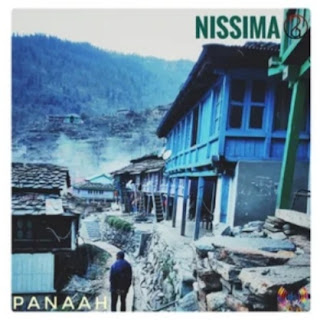Nissima/ Panaah
BY NARENDRA KUSNUR
Nissima/ Panaah
Genre: Hindi rock
Label: Inkk Audio
Rating: ****
Half-way through 'Barkhaa', the opening track of Pune band Nissima's new album Panaah, you feel you're listening to a cleverly disguised blend of Pakistani acts Strings and Fuzon. But give the song a few repeats, and check out some of the other stuff here, and the gems slowly begin to unravel. The title track and the concluding 'Un Adaaon Ki', in particular, have a unique brilliance.
Fronted by vocalist and guitarist Harshad Sathe, Nissima (meaning boundless) sticks to its title by seamlessly travelling between genres. The basic sound is an amalgam of guitar rock with Hindustani classical elements, and though one finds occasional influences of U2 riffing and Colonial Cousins fusion besides the Pak-rock bands, the songs are appealing in their own way.
Unlike many known vocalists in a similar genre, Harshad doesn't force himself to scream or uncomfortably change scales in order to sound 'rock'. His delivery is natural and his timbre is pleasant, even reminding you of Hariharan on some slower passages. His diction is perfect on the Urdu lines, adding to the depth of the songs.
The band, also comprising Saket Rao on production and drums and Amit Gadgil on bass, with guests Aditya Athalye on tabla and Pranay Sastry on guitars, comes up with intricate song constructions, alternating between uptempo Hindi pop-rock and soulful balladry. For variety, a Marathi song 'Tu Distaa' is added, and it's a welcome diversion.
The opening 'Barkhaa' is a rain song with a few classical acrobatics, "Behti pawan laayi badra, behti pawan bikhre barkha, pawan bina bikhre, bina sawan barse, kaare baadal chaake nahin woh barse dekho yeh tarse kaise angana" against a stunning bassline. Despite shades of Fuzon's 'Aankhon Ke Saagar', it stands out on its own.
'Kashmakash' (meaning dilemma) begins on a slower note, with, "Yeh kashmakash ki baatein hain, koi suljhaade inse mujhko, jo jaise samjhe ishq ko, khud apne dil se sanwaar lo". The vocals are pleasantly done and the instrumental interludes are a complete contrast in energy.
The title track ('Panaah' meaning refuge) is a slow burner. The opening lines "Har ek din dhale teri baazuon mein, falak ke taley taare dekhte, teri baahon mein tu panaah de" brim with melody, and the song makes imaginative use of metaphors. Harshad's vocals are at their best here, and that short and sudden guitar solo burst is itself worth many replays.
'Nishaan' and 'Jadoo' are pop-rockers seemingly aimed at concert performance, picking up tempo towards the end. The gradual unfolding of the intro on 'Reham' is a delight, as Harshad sings, "Ae khuda tera reham yeh, na samajh koi sakaa hai, ae khuda tera reham yeh, lagta saara hai veham hai".
In contrast to the raw power of 'Reham', the Marathi 'Tu Distaa' is effervescent, with pleasant arrangements. Finally, 'Un Adaaon Ki' acts as a perfect album closer, with the background brass sounds running in parallel. The song is written in a ghazal format, beginning with the lines, "Un adaaon ki nazaakat mein ulajhta hai dil, unki masoom nigaahon mein ulajhta hai dil".
Despite the obvious inspirations, this album is extremely likeable on its own. The compositions are fabulous, and the consistent vocals are backed by outstanding drums, bass and guitar. The band had released a self-titled EP in 2019, and now the maturity is evident.
At a time when many musicians are releasing singles, it's heartening to note that some are still coming out with albums. There's a certain coherence about Panaah that makes it special and complete.




Comments
Post a Comment